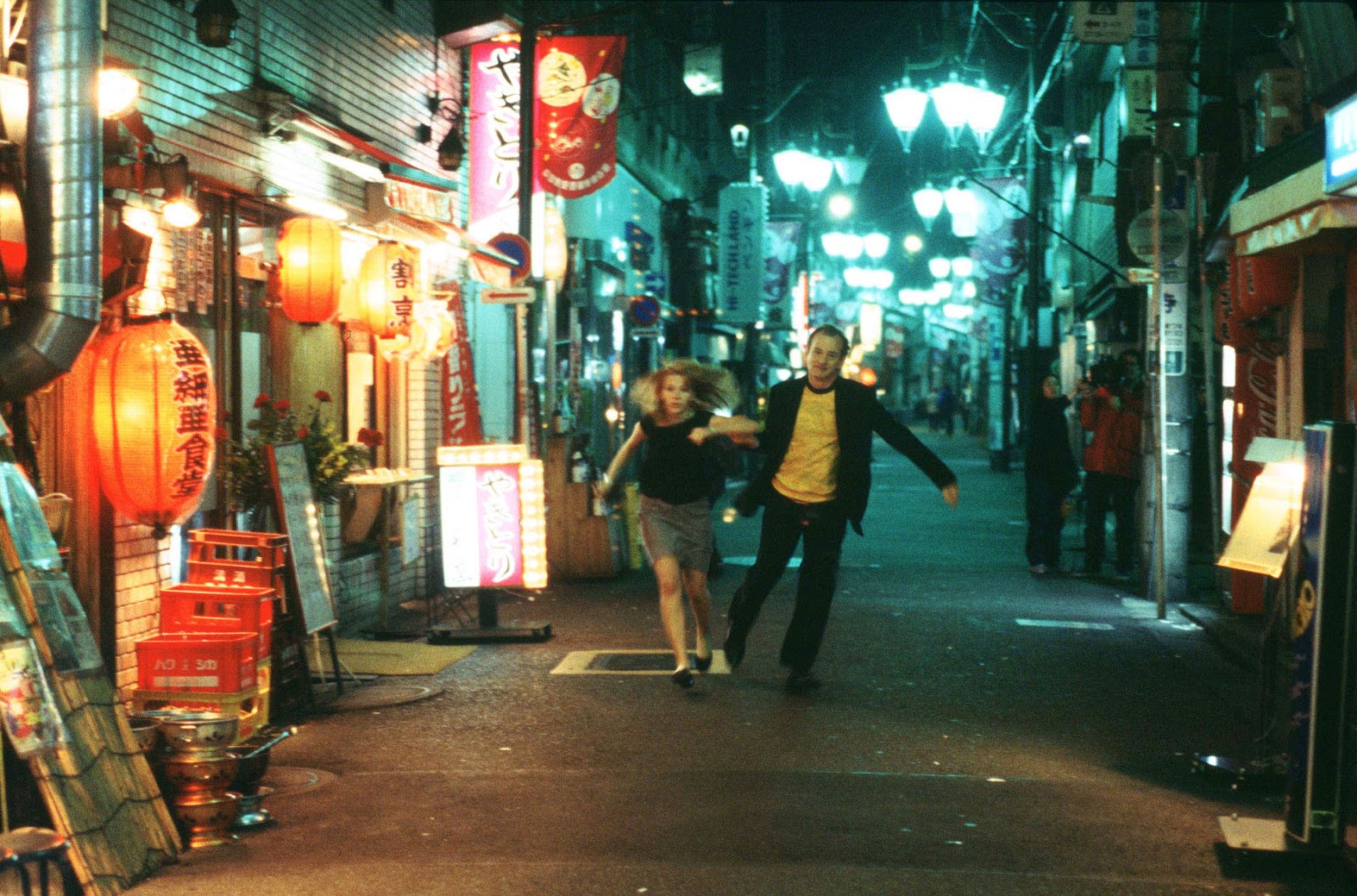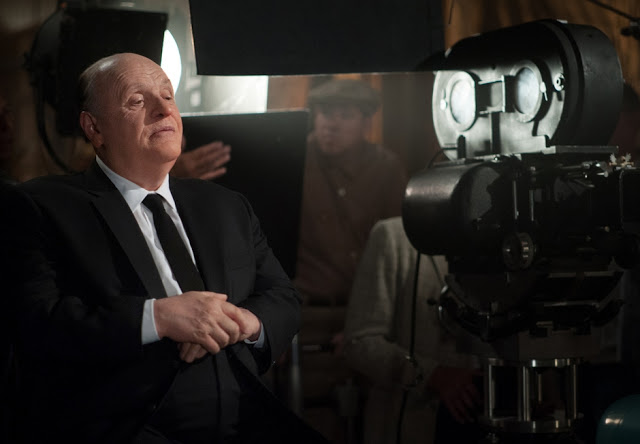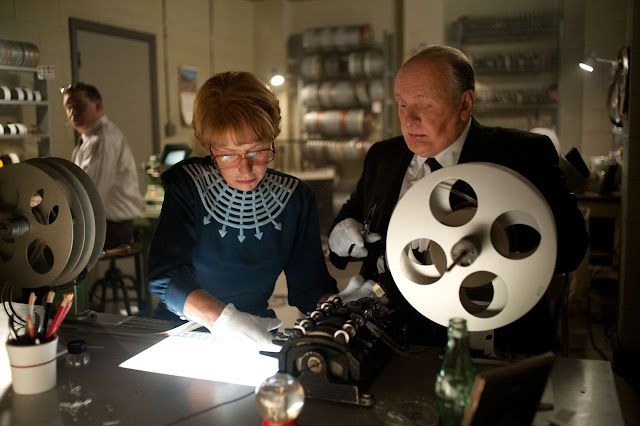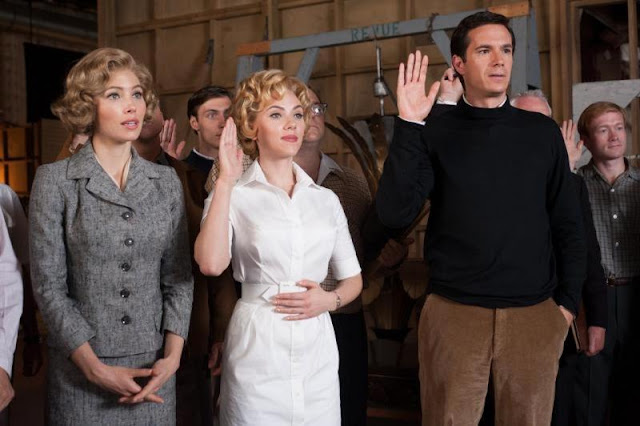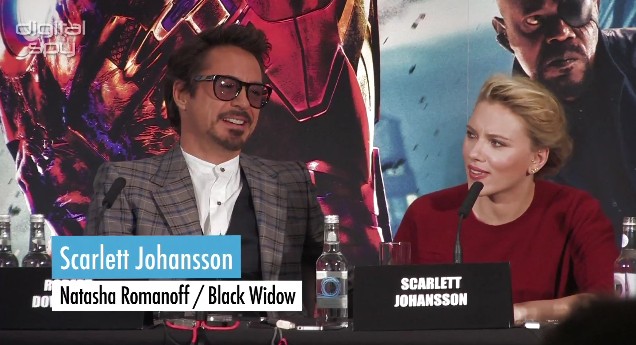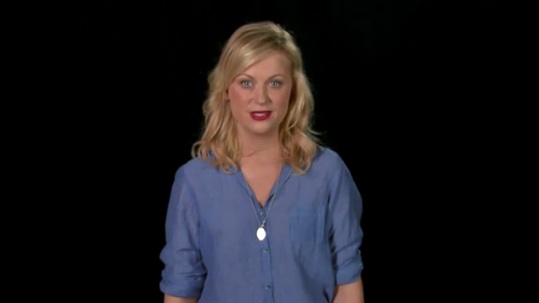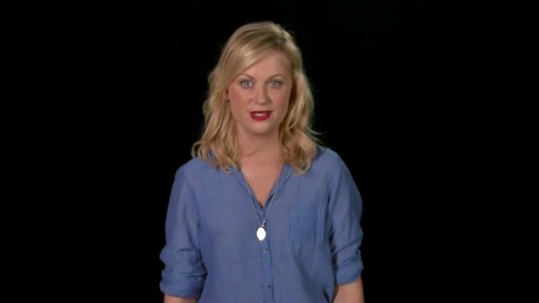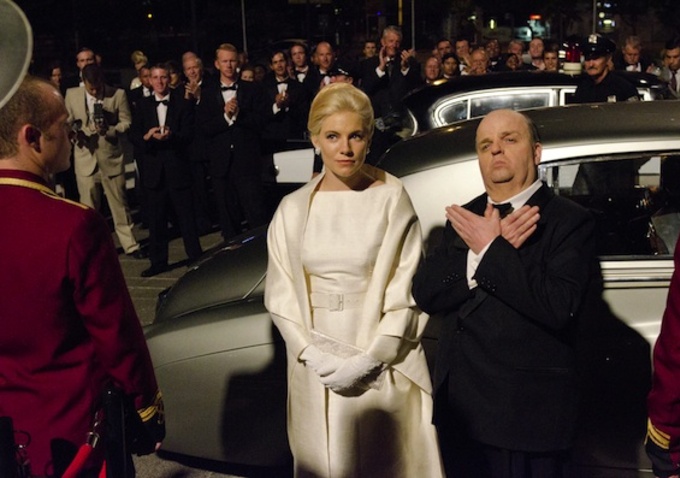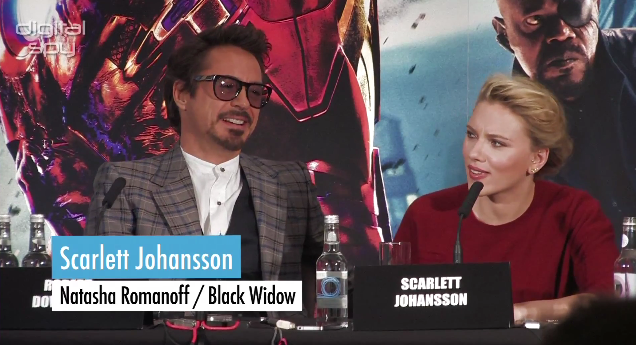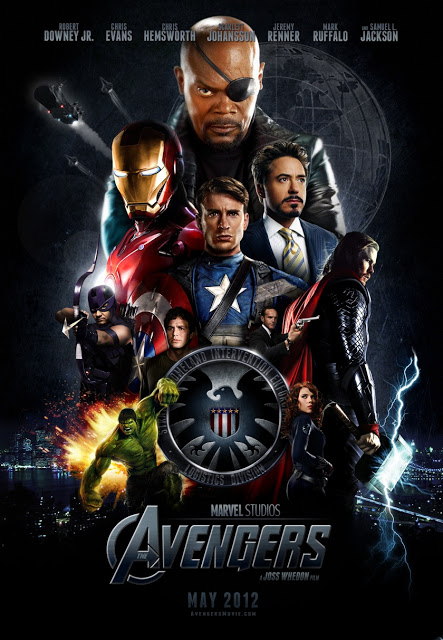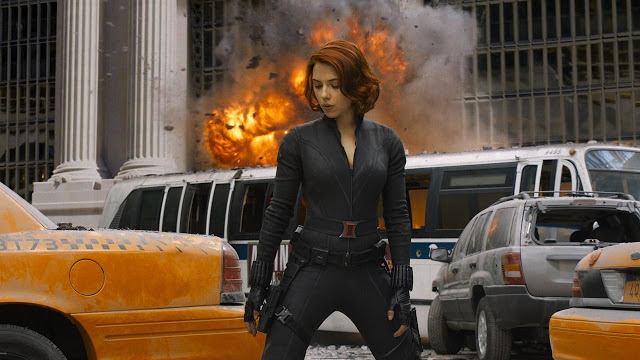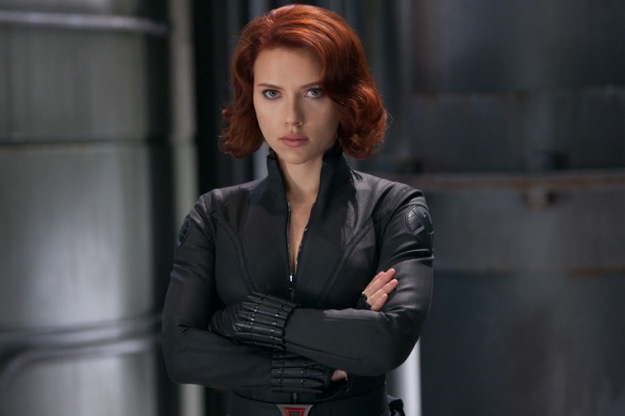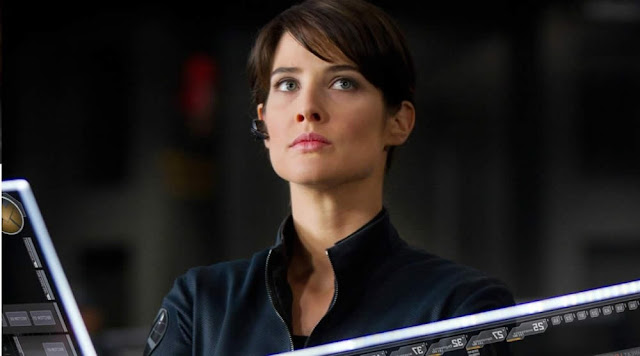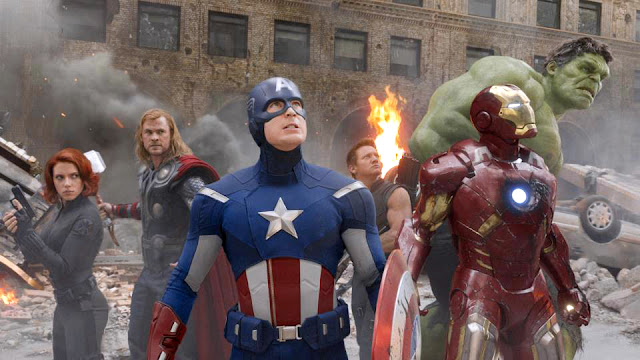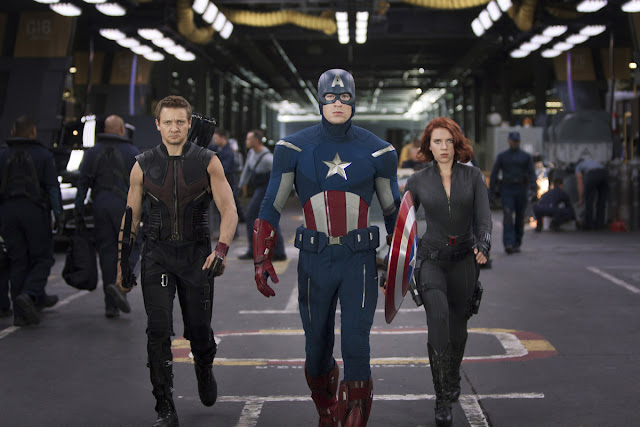Welcome to the first installment of Ripley’s Rebuke, a series of reviews of films that pass Ripley’s Rule while remaining essentially misogynistic.
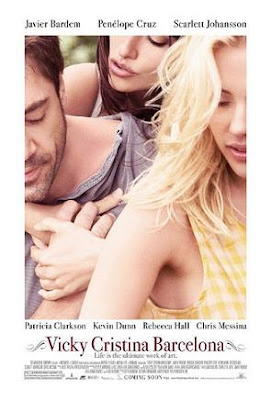 Written and directed by Woody Allen; starring Rebecca Hall, Scarlett Johansson, Javier Bardem, and Penelope Cruz.
Written and directed by Woody Allen; starring Rebecca Hall, Scarlett Johansson, Javier Bardem, and Penelope Cruz.
I like Woody Allen, while admitting that his best work is (long) behind him. With all the accolades Vicky Cristina Barcelona has received, I decided to give it a shot.
Vicky (Hall) and Cristina (Johansson) are privileged college students spending two months of their summer in Barcelona; Vicky plans to study for her thesis on Catalan identity (despite not speaking a lick of Spanish), and Cristina tags along, hoping to find something about herself and art, after she devoted six months to making a 12-minute film she now hates (a humorous and revealing detail). Both young women fall for the same Spanish artist/lothario (Bardem), and a contemplation on the nature of love follows.
Vicky and Cristina represent the stereotypical blonde/brunette 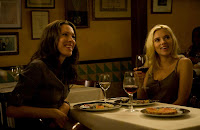 duo in film: the brunette is repressed, practical to a fault, cautious, and afraid; the blonde is adventurous, sexual, open, and fun. It’s almost as if these characters represent two halves of the same person. Vicky has a responsible businessman fiance back home in New York, while Cristina jumps into bed with the first Spanish man she meets–not knowing, of course, that Vicky is also hot for him. The three of them spend a weekend together, and a convenient little plot device ensures that Vicky will actually sleep with the artist first, but is soon left behind for the more sexually attractive (and less neurotic) Cristina.
duo in film: the brunette is repressed, practical to a fault, cautious, and afraid; the blonde is adventurous, sexual, open, and fun. It’s almost as if these characters represent two halves of the same person. Vicky has a responsible businessman fiance back home in New York, while Cristina jumps into bed with the first Spanish man she meets–not knowing, of course, that Vicky is also hot for him. The three of them spend a weekend together, and a convenient little plot device ensures that Vicky will actually sleep with the artist first, but is soon left behind for the more sexually attractive (and less neurotic) Cristina.
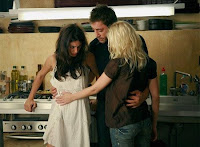 Soon, Cristina moves in with Juan Antonio, and his ex-wife unexpectedly comes into the picture, providing the film some much-needed energy, and also its low point. Penelope Cruz as the seriously unstable Maria Elana barrels, shrieks, and smokes her way into a menage-a-trois relationship with Cristina and Juan Antonio. While the scenario sparks precious few laughs (in a film almost devoid of humor), a question haunts Cruz’s every scene: why did she win so much praise for this role? (For the record, Cruz won a Best Supporting Actress Academy Award, a Best Supporting Actress BAFTA Film Award, a Best Supporting Female Independent Spirit Award, Best Supporting Actress SAG Award, among others. The film also won Allen a Best Screenplay Independent Spirit Award and a Best Picture Golden Globe Award, along with numerous other nominations and wins.) Maria Elana’s hysteria is epic, almost nineteenth-century in its intensity, as she tries to commit suicide and murder during her limited screen time. We’re told she’s a better artist than her ex-husband (it’s worth noting that she accuses Juan Antonio of stealing her style, and he is the one who lives in the house they shared and who has artistic success), but also that she falls apart without him–and with him, until Cristina creates the triangularity that allows the relationship to work. And, yes boys, you get to see a brief scene of Scarlett Johansson and Penelope Cruz getting it on.
Soon, Cristina moves in with Juan Antonio, and his ex-wife unexpectedly comes into the picture, providing the film some much-needed energy, and also its low point. Penelope Cruz as the seriously unstable Maria Elana barrels, shrieks, and smokes her way into a menage-a-trois relationship with Cristina and Juan Antonio. While the scenario sparks precious few laughs (in a film almost devoid of humor), a question haunts Cruz’s every scene: why did she win so much praise for this role? (For the record, Cruz won a Best Supporting Actress Academy Award, a Best Supporting Actress BAFTA Film Award, a Best Supporting Female Independent Spirit Award, Best Supporting Actress SAG Award, among others. The film also won Allen a Best Screenplay Independent Spirit Award and a Best Picture Golden Globe Award, along with numerous other nominations and wins.) Maria Elana’s hysteria is epic, almost nineteenth-century in its intensity, as she tries to commit suicide and murder during her limited screen time. We’re told she’s a better artist than her ex-husband (it’s worth noting that she accuses Juan Antonio of stealing her style, and he is the one who lives in the house they shared and who has artistic success), but also that she falls apart without him–and with him, until Cristina creates the triangularity that allows the relationship to work. And, yes boys, you get to see a brief scene of Scarlett Johansson and Penelope Cruz getting it on.
While all of Cristina’s sexy artistic madness happens, Vicky studies and regrets her choice of lifemate, Doug, who, despite his romantic gesture of flying to Barcelona for an impromptu marriage (with the promise of a lavish wedding back home, as previously planned), turns out to be a closed-minded dork. Vicky pines for Juan Antonio, endeared by his poet father and her surprise at perhaps (perhaps!) judging him too harshly. (Certainly there are no other sexy artists in Barcelona she could use to convince herself not to marry the man who planted that rock on her finger.)
In contrast to Penelope Cruz’s entire presence in the film, the high point, for me, comes at the end, when Cristina and Vicky head home, both resuming the lives they left behind, having come to no epiphany about the nature of love, having experienced no real growth or change of character. It’s bleak, it’s not funny, but it’s perhaps the most real and true moment of the entire film.
As for the need for a rebuke of this film, it (barely) passes the Bechdel Test, but does more to exploit its women than allow them to be full human beings. 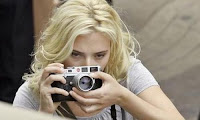 There are more than two named female characters, and they talk to each other, though almost every conversation is about men. There may be a brief line or two between Cristina and Maria Elana about photography, but soon after the conversation they kiss. And there’s nothing at all offensive about the kiss; it’s that there’s no believable passion–it seems like an act strictly performed for a male (ahem, Woody Allen) gaze. Further, Maria Elana objectifies herself for Cristina’s photography, posing as a prostitute in what passes for a rough part of town, mirroring the actual prostitutes that Cristina photographs while out with Juan Antonio.
There are more than two named female characters, and they talk to each other, though almost every conversation is about men. There may be a brief line or two between Cristina and Maria Elana about photography, but soon after the conversation they kiss. And there’s nothing at all offensive about the kiss; it’s that there’s no believable passion–it seems like an act strictly performed for a male (ahem, Woody Allen) gaze. Further, Maria Elana objectifies herself for Cristina’s photography, posing as a prostitute in what passes for a rough part of town, mirroring the actual prostitutes that Cristina photographs while out with Juan Antonio.
Penelope Cruz deserved the Oscar for her role in Volver, not for her turn as a sexy shrieking cartoon character. 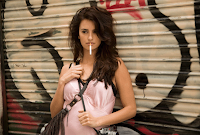 The film deserves a rebuke for its pseudo-intellectualism about the meaning of love, and for the trite way it uses art and place. It deserves a rebuke for the flightiness and uncertainty of all of its female characters (including a weak turn from Patricia Clarkson, playing the ghost of Vicky’s future), while creating only confident, bold, male characters. Juan Antonio never seems to long for answers about love; he simply takes his conquests in stride, collecting lovers without thought. Women here don’t know what they want, and seem pathologically incapable of enjoying what they have or going after what they want.
The film deserves a rebuke for its pseudo-intellectualism about the meaning of love, and for the trite way it uses art and place. It deserves a rebuke for the flightiness and uncertainty of all of its female characters (including a weak turn from Patricia Clarkson, playing the ghost of Vicky’s future), while creating only confident, bold, male characters. Juan Antonio never seems to long for answers about love; he simply takes his conquests in stride, collecting lovers without thought. Women here don’t know what they want, and seem pathologically incapable of enjoying what they have or going after what they want.







